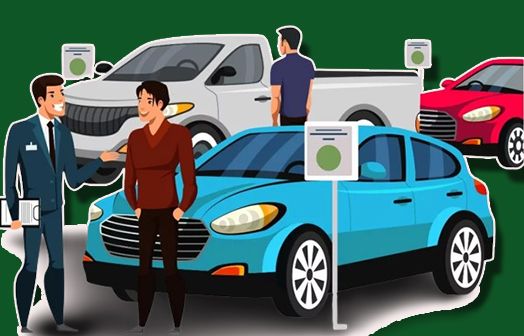What Is a Lease Buyout Loan? – You might’ve heard of lease buyout loans but aren’t sure what they are. These loans allow you to buy the car you’ve been leasing once your lease contract is up. Instead of returning the vehicle or starting a new lease, you can take out a loan to cover the remaining cost of the car, known as the residual value.

If you’re thinking about a lease buyout loan, make sure to read your lease agreement carefully to understand the terms. To get started, reach out to the leasing company and let them know you’re interested in buying the car. Then, apply for loan preapproval to get an idea of your eligibility and loan terms.
Keep in mind that lease buyout loans often have higher interest rates than loans for new cars. Additionally, not all lenders offer lease buyout loans, so your options may be limited. When deciding if a lease buyout loan is right for you, consider the total cost, including the residual value, interest rates, and any extra fees. This will help you make an informed choice that best fits your finances and preferences.
How Does a Lease Buyout Loan Work?
When your car lease is almost up, you’ll have a few options to choose from. The leasing company will reach out to discuss these options, but it’s a good idea to do some research and review your lease agreement beforehand. Here are the typical choices:
- Hand the car back to the leasing company.
- Buy the car outright using cash.
- Take out a lease buyout loan to become the car’s owner.
The lease agreement contains important info like the car’s residual value, which is the leasing company’s estimate of how much the car will be worth at the end of the lease. This estimated worth is what you’d pay if you decide to buy the car. Keep in mind that the residual value is an informed guess, so it’s worth doing some research to see if it seems reasonable.
How To Get a Lease Buyout Loan
Some leases have rules about when you can do a lease buyout. For example, you might find that your contract doesn’t allow buyouts during the first or last few months of the lease. So, if you try to buy out your lease with only a couple of months left, you might be out of luck.
To get a lease buyout loan, look into options from different places like banks, credit unions, online lenders, and finance companies. Compare their rates and terms to find the best loan for your situation.
Your preapproved loan amount will depend on things like your income, expenses, credit score, and the car’s value. Since a lease buyout loan is a used car loan, interest rates, and fees might be higher than for a new car loan.
Here’s a simple step-by-step guide for the lease buyout process:
- Check your lease agreement for any rules about when you can do a buyout.
- Figure out how much your car is worth to help you negotiate a fair price and loan.
- Let the leasing company know you want to buy the car at the agreed-upon residual value.
- Shop around for the best lease buyout loan.
- Negotiate a fair price and sign the agreement.
Your preapproved loan will be based on the car’s residual value in the lease agreement, plus any remaining payments you owe. The lender will usually hold the car title as collateral, which is standard practice for new and used car loans.
What To Consider Before Buying Out Your Lease
Before you decide to buy out your lease, take a moment to think about these points:
- Check the car’s condition and be ready for any end-of-lease fees.
- Compare your car to others on the market, considering its condition and value.
- Mileage is important in negotiations; try to get a lower buyout price if you’ve gone over your mileage limit.
- Be ready to negotiate everything, including fees and terms, to get the best deal.
- Compare the car’s residual value in the lease agreement to its current market value to figure out a fair buyout price.
- Be aware of all the costs, including repairs, maintenance, and extra fees like taxes and registration.
- Look into loans from various lenders to find the best terms for your lease buyout.
- Carefully review your lease agreement to understand the terms, fees, and any rules that might apply.
By keeping these things in mind, you can make sure that the lease buyout decision is the right one for your financial goals and needs.
Frequently Asked Question
Is It Better To Lease or Finance?
Leasing is cheaper than financing, but knowing you own the car gives you a sense of ownership, so you could sell it later, and recoup the money back. Before leasing, you should know that taking long trips, driving often, and having a long commute to work have its advantages.
What Are The Disadvantages Of A Lease?
- Never owning the car
- charges for damage
- Exceeding mileage limits
- Restrictive terms and conditions
Is It Good Or Bad To Lease?
If you are comfortable not owning a car, if you can live with the limitations on mileage, wear and tear, and the rest, then leasing may be worth the cost.
What Is The Biggest Advantage Of Leasing?
The advantage of leasing is the low initial investment. Instead, you to pay for the vehicle, you just pay for the portion you use from the vehicle.

